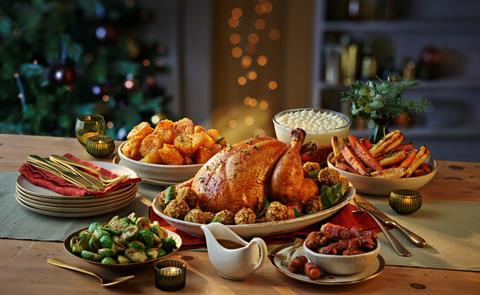Retailer posts strong year-on-year grocery growth as it continues to take on Aldi and Lidl on price

Sainsbury’s saw its grocery sales climb 8.6 per cent over the Christmas period, winning shoppers from all of its major supermarket competitors.
Asda lost out most to Sainsbury’s, followed by Tesco, Aldi and Morrisons, according to data from Nielsen.
The 8.6 per cent year-on-year sales rise was over the six weeks to 7 January, offsetting significant drops in the retailer’s Argos and clothing sales.
Meanwhile, in the 16 weeks to 6 January, the grocery sales uplift was even greater at +9.3 per cent.
Total retail sales (excluding fuel) in Q3 increased by 6.5 per cent, while like-for-like sales were up 7.4 per cent.
Sainsbury’s continues to expect underlying pre-tax profit for the year of between £670m and £700m.
The supermarket chain said its food volumes grew ahead of the market over the period as it continues its battle with the discounters. Sainsbury’s has been taking on Aldi and Lidl on price as it tries to attract cash-strapped shoppers.
The retailer continued to lower its prices during the quarter, supported by Nectar Prices on more than 6,000 products.
For the first time, Sainsbury’s offered a Christmas roast (for a family of six) for less than £3 per person through Nectar prices.
Sainsbury’s CEO Simon Roberts said: “We’ve worked hard to really deliver for our customers this quarter and have grown grocery volumes ahead of the market for the fourth Christmas in a row.”
This was the case across the basket, including fruit and veg as well as meat, fish, poultry, and dairy.
“More customers are choosing to shop at Sainsbury’s, recognising our determined focus on value, product innovation and service,” Roberts continued.
“This was our first Christmas powered by Nectar Prices, helping customers save an average of £16 on an £80 Christmas shop.”
At the premium end, Taste the Difference sales were up 13 per cent, growing ahead of the market, as families treated themselves.
Sainsbury’s also continued to innovate in packaging and recently announced a switch from plastic to cardboard mushroom punnets. This will save over 775 tonnes of plastic per year, Sainsbury’s said.



